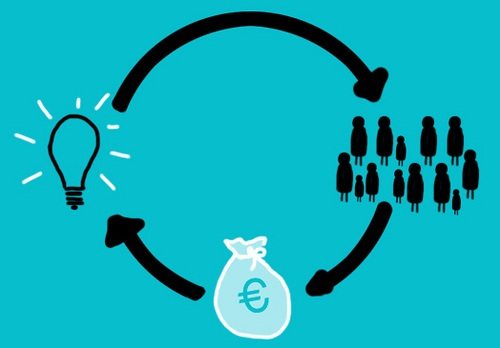
July 8, 2013; Inc., “Wire”
Nathaniel Karp, chief economist for BBVA Compass, suggests in an economic outlook report that the rise of crowdfunding is a classic “Innovator’s Dilemma” for banks. In the first stage, banks need to be “introspective,” and figure out what they do best. Then, “banks should actually invest resources in the disruptive model.”
The idea that banks could potentially build their own crowdfunding platforms into their existing services is surprising, and carries with it a level of risk to the bank. But will those who have until now been attracted by crowdfunding sites like Indiegogo and Kickstarter forgo them for the likes of BBVA Compass?
Inc.com contributor Eric Markowitz says it’s unlikely, because crowdfunding is not just about the money.
Sign up for our free newsletters
Subscribe to NPQ's newsletters to have our top stories delivered directly to your inbox.
By signing up, you agree to our privacy policy and terms of use, and to receive messages from NPQ and our partners.
“One of the major attractions of using these crowdfunding portals in the first place is the promotional element: Create a buzzworthy campaign and you can reach your funding goal in a matter of days or weeks, not to mention garner a loyal base of fans. For that reason, entrepreneurs will stick with major crowdfunding ‘brands’ they know.”
Another reason may be that the growth of crowdfunding to date has been driven by artists, nonprofits, social enterprises and, in a more recent development, health-related fundraising drives (as reported in Nonprofit Quarterly). Are these types of people and groups likely to want to deal with banks, rather than the more innovative and independent crowdfunding sites that have proliferated via the Internet and are fuelled by the poor economy and credit crunch? Crowdfunded projects came to life just when the banks became less approachable as a result of the financial crisis.
Karp also anticipates that banks may find crowdfunding challenging in the short term because, unlike banks, “crowdfunding platforms do not raise deposits and thus, they are not regulated by the FDIC or the Federal Reserve.” As Markowitz points out in an earlier article, “In the United States, equity crowdfunding is still unregulated, and thus, illegal.”
Last April, President Obama signed the Jumpstart Our Business Startups (JOBS) Act, in part as a response to the growth of crowdfunding. The U.S. Securities and Exchange Commission was given a 90-day deadline to create the guidelines by which startups could solicit funds, and by which accredited investors could be verified online. The SEC missed its July deadline. Since then, the SEC has largely stalled.
For now, crowdfunding’s rapid growth may continue. But what will happen in the future, once the SEC completes its task?—John Godfrey













